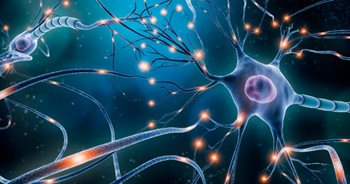
The Unseen Plastic Health Threat Lurking in Your Tea
You may be drinking billions of microplastic and nanoplastic particles with each cup of your favorite tea. Find out how this could be impacting your health and what you can do to avoid this hidden danger.
Microplastic pollution has become a pervasive problem, with recent estimates suggesting that people consume between 39,000 and 52,000 microplastic particles annually, depending on age and sex.1 These tiny plastic fragments, ranging in size from 1μm to 5mm, are not only polluting our environment but also finding their way into our food and beverages, including our daily cup of tea.2 Nanparticle contamination is ubiquitous in bottled water as well, with a recent study finding that there are on average 240,000 toxic nanoparticles in every bottle of water tested.
A recent study published in the Journal Environmental Science & Technology has raised concerns about the presence of microplastics and nanoplastics in tea bags.3 The researchers found that a single plastic tea bag, when steeped at brewing temperature, can release approximately 11.6 billion microplastics and 3.1 billion nanoplastics into a cup of tea.3
The Prevalence of Plastic in Tea Bags
Tea is one of the most therapeutic and commonly consumed herbs in the world. Indeed, GreenMedInfo contains almost a thousand studies on the health benefits of this wonderful plant concoction for over 380 health conditions. However, while many tea drinkers might assume that their tea is improving their health and that their tea bags are made from biodegradable materials like paper, the reality is that a significant number of tea bags contain plastic. In fact, around 96% of the tea sold in the UK market is packaged in tea bags.4 A study by Xu et al. tested six tea brands and discovered that four of them contained varying amounts of polypropylene, one was almost entirely made of nylon, and only one was thought to be biodegradable and plastic-free.5
The use of plastic in tea bags is concerning because these materials are subjected to high temperatures during the brewing process. Even "food grade" plastics can break down or release harmful substances when heated above 40°C.6 As a result, frequent tea drinkers may be continuously exposing themselves to billions of plastic particles, some of which could be small enough to enter human cells.
Potential Health Risks Associated with Microplastics
Although the specific health consequences of ingesting microplastics and nanoplastics in humans are not yet fully understood, studies on animals have shown that exposure to these particles can lead to oxidative stress and inflammation in the gut.7 This can result in the erosion of the gut mucosa, causing epithelial impermeability and potentially leading to malabsorption, weakness, and/or undernutrition.7
Moreover, microplastics can contain additives, adsorb pollutants, and support the growth of harmful bacteria on their surface, making them particularly hazardous to ingest.7 This can impair the body's defense system and increase susceptibility to diseases. Microplastics can also carry intestinal toxins that disrupt gut functions and alter the balance of gut microbiota, potentially setting the stage for long-term immune system issues.7
In relation to gastrointestinal cancer, a multi-endpoint toxicological study on colorectal cancer cell lines demonstrated higher absorption and intracellular accumulation of microplastic and nanoplastic particles.8 While more research is needed to fully understand the implications of microplastic ingestion on human health, the potential risks cannot be ignored.
Natural Alternatives to Plastic Tea Bags
To minimize the consumption of microplastics from tea bags, tea enthusiasts can opt for loose leaf teas that can be brewed in glass, metal, or ceramic strainers. This not only reduces exposure to potentially harmful plastic particles but also allows for a more traditional and sustainable tea brewing experience.
Another option is to use cloth-based tea bags or instant tea as alternatives to conventional tea bags. By making these simple changes, tea drinkers can significantly reduce their intake of microplastics and nanoplastics while still enjoying their favorite beverage.
The Way Forward
As research continues to uncover the potential health risks associated with microplastic pollution, it is crucial for both consumers and tea companies to take action. Consumers can make informed choices by opting for loose leaf teas or plastic-free tea bags, while also advocating for tea companies to switch to more sustainable and safer packaging materials.
Future studies should focus on investigating the release of microplastics from plastic products, particularly those that are heated during processing, such as tea bags. By identifying the sources and pathways of microplastic exposure, we can better understand the risks and develop effective strategies to mitigate them.
In conclusion, the presence of microplastics and nanoplastics in tea bags is a growing concern that cannot be overlooked. While the full extent of the health risks associated with consuming these tiny plastic particles is not yet known, the evidence from animal studies suggests that there may be potential dangers to human health. By making informed choices and supporting sustainable alternatives, we can work towards reducing our exposure to microplastics and protecting our well-being in the long run.
Additional Ways to Mitigate Microplastic Harms
- Boiling, Distilling and Reverse Osmosis Water Purification: A new study reveals that simply boiling tap water can eliminate up to 90% of the nano- and micro-plastics that have infiltrated our drinking water supply. This straightforward method provides a ray of hope amid the complex environmental challenge posed by plastic pollution. Ideally, one would boil the water or use distillation to remove the plastic as well as many other dissolved solids found in normal tap water. Or, one can boil the water and then use a reverse-osmosis water purifier to remove the remaining toxic load of inorganic compounds.
- Preliminary research indicates that activated charcoal may adsorb and remove micro- and nano-plastics from the body. Global Healing makes an ozonated version with enhanced micropore numbers increasing its ability to bind to and neutralize these plastics.
- There are excellent tea brands that do not use tea bags, and are grown in organic and wild-simulated fashion, ensuring your teas are of the highest quality and potency. If you visit our friends at Kauai Farmacy using the following link and enter the coupon code GREENMEDINFO, you can get 15% off: https://shop.
kauaifarmacy.com/discount/GreenMedInfo
------------------------------------------------------------------------------------------------
Learn more about the role of healthcare workers in the identification and care of victims and the prevention of human trafficking through the following courses:
- Human Trafficking Education for Healthcare Professionals
- Human Trafficking Education for Florida Healthcare Professionals
- Human Trafficking Education for Michigan Healthcare Professionals
- Human Trafficking Education for Texas Healthcare Professionals
- Sex Trafficking Awareness for the Healthcare Professional
- Sexual Assault Evidence Collection (SANE) Education for Texas Nurses
- Sexual Assault Victims: Role of the Nurse
- Human Trafficking - Online Inservice
Pedagogy's courses are available for purchase by the individual or facility. For individuals, register with us to create your username and password, click on the course title of interest and then click the Buy Now button. For a complete listing of all our online continuing education courses, including the largest selection of infusion continuing education courses offered online, click here!

